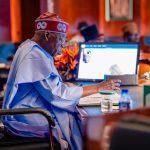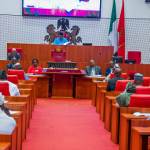By Kabiru Abdulrauf
On October 1, 1960, Nigeria lowered the Union Jack and hoisted the green-white-green flag of independence. Sixty-five years later, Africa’s most populous nation and largest economy stands as a complex but resilient story of hope, struggle, and progress. While challenges abound, Nigerians have also enjoyed significant dividends of independence achievements that span politics, education, infrastructure, sports, culture, and global influence.
The first dividend of independence was political sovereignty. Nigerians assumed control of their destiny, ending decades of colonial rule. Though interrupted by periods of military intervention, the return to democracy in 1999 marked a turning point. For twenty-six years, civilian governance has endured the longest stretch in Nigeria’s history. Today, elections, though imperfect, give citizens the power to choose leaders, debate policies, and demand accountability in ways unimaginable under colonial administration.
Education represents another profound achievement. In 1960, Nigeria could count its universities on one hand. Today, the nation boasts over 200 universities alongside thousands of polytechnics, colleges, and vocational institutes. Literacy rates have more than doubled, and Nigerian graduates now drive industries across the globe. From Ngozi Okonjo-Iweala, who leads the World Trade Organization, to Jelani Aliyu, designer of the Chevrolet Volt, Nigerians exemplify the global reach of homegrown talent.
The story of infrastructure and urbanisation also reflects transformation. At independence, infrastructure was modest and designed largely for colonial convenience. Six decades later, Nigeria has constructed expansive road networks that link states and regions, built modern airports and airlines that connect the country to the world, and transformed cities such as Lagos and Abuja into thriving hubs of business, diplomacy, and culture. Perhaps the most striking change has come through telecommunications: from less than one percent mobile penetration in 2001 to over 100 million active lines today, Nigeria now stands as Africa’s largest digital market.
Sports have been another unifying source of pride. The world remembers Nigeria’s “Dream Team,” which stunned global football by winning Olympic gold in 1996 a first for Africa. From the boxing exploits of Dick Tiger and Anthony Joshua to Chioma Ajunwa’s Olympic long jump gold and Tobi Amusan’s 2022 world-record-breaking triumph in athletics, Nigerian athletes have carved their names in history. For countless youths, sports have been both an inspiration and a pathway to economic survival.
Nigeria’s cultural influence has, perhaps, been its most global export. Nollywood, now the world’s second-largest film industry, employs millions and dominates screens across Africa. Nigerian music Afrobeats in particular has taken global stages by storm, with Burna Boy, Wizkid, and Tems headlining international festivals and award ceremonies. Literature, too, remains a beacon: Chinua Achebe’s Things Fall Apart set the foundation, while Chimamanda Ngozi Adichie and other contemporary writers continue to shape global discourse on identity, feminism, and postcolonial struggles.
Economically, Nigeria has transformed from an agricultural economy in 1960 to a diversified powerhouse. While oil revenues remain central, the rise of services, ICT, and creative industries has broadened the nation’s base. Today, Nigeria is Africa’s largest economy, with a GDP of more than $500 billion. Its entrepreneurial spirit is visible in the emergence of tech unicorns like Flutterwave and Andela, which place Nigeria firmly within the global innovation space.
On the continental and global stage, Nigeria has often acted as a leader. From championing anti-apartheid struggles to spearheading peacekeeping missions in Liberia, Sierra Leone, and The Gambia, the country has been at the heart of Africa’s stability. Today, it is actively pushing for UN Security Council reform to secure Africa’s permanent voice in global decision-making.
At 65, Nigeria is a nation of contradictions blessed with abundant potential yet hampered by governance challenges, insecurity, and inequality. But the dividends of independence are undeniable: political freedom, resilience, creativity, and global recognition. The task ahead lies in transforming these gains into inclusive prosperity, ensuring that the pride of heritage is matched by improvements in living standards for all citizens.
As the nation celebrates its 65th Independence Anniversary, one truth endures: Nigeria has not only survived but continues to strive, adapt, and redefine its destiny. And in that striving lies its greatest promise.








